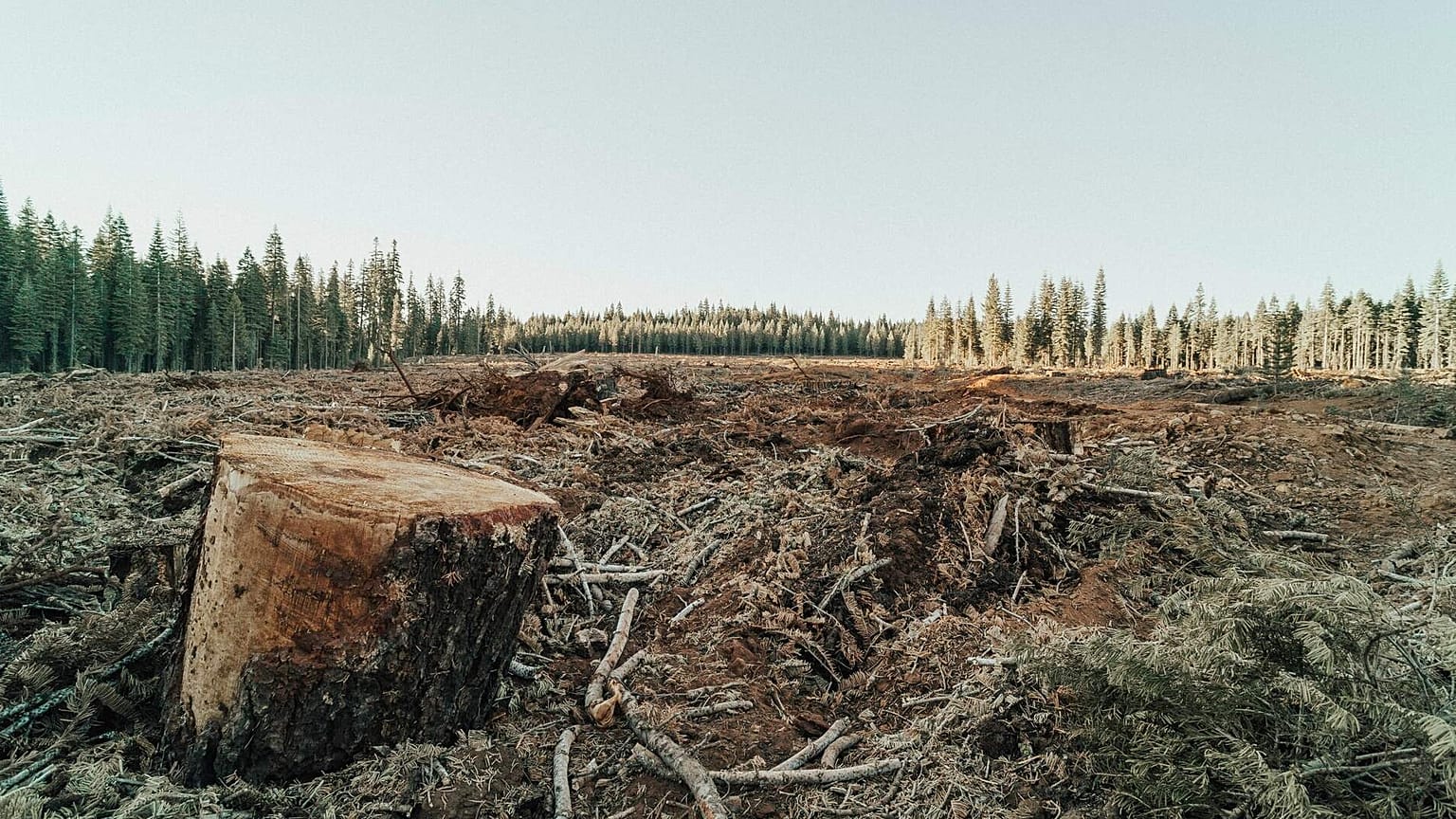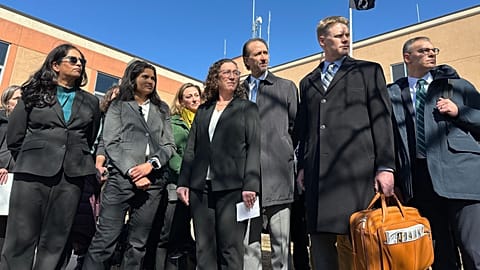Global forest loss is 63 per cent off 2030 targets as finance and policy pledges fall behind.
Global efforts to halt deforestation are falling far short, according to a major new report that finds the world is nearly two-thirds off track to meet its zero-deforestation targets by 2030.
 ADVERTISEMENT
ADVERTISEMENT
 ADVERTISEMENT
ADVERTISEMENT
The Forest Declaration Assessment 2025 – released today by a coalition of research groups and NGOs – reveals that 8.1 million hectares of forest were permanently lost last year, an area roughly half the size of England. That figure exceeds the annual limit needed to meet 2030 goals by more than three million hectares.
It is even higher than the rate of loss recorded in 2021, when world leaders renewed their pledge to end deforestation.
“Every year, the gap between commitments and reality grows wider,” says Erin Matson, one of the report’s lead authors. “Forests are non-negotiable infrastructure for a livable planet. Continued failure to protect them puts our collective prosperity at risk.”
The findings come just weeks before COP30 climate talks in Belém, Brazil, the first UN summit to be held in the Amazon, where the future of global forest finance will be a central issue.
Commitments made, promises broken
When world leaders signed the Glasgow Leaders’ Declaration on Forests and Land Use in 2021, they vowed to end forest loss and restore 350 million hectares of degraded land by the end of the decade.
The new analysis shows that global forest loss remains 63 per cent off target. In fact, deforestation is also accelerating in key regions.
Fires alone wiped out 6.7 million hectares of forest in 2024, much of it in Latin America, Southeast Asia and Africa. Those blazes released an estimated 3.1 billion metric tonnes of greenhouse gases, nearly 150 per cent of the annual emissions from the United States energy sector.
“Research shows that degraded forests are more likely to be deforested [in the future],” says Ivan Palmegiani of Climate Focus, one of the research partners.
“Yet because degradation is harder to track than outright clearance, [it often goes] undetected or poorly reported.”
The money problem holds back change
While climate negotiators have long stressed the importance of protecting forests, the report argues that financial incentives still overwhelmingly favour their destruction.
Between 2017 and 2022, international public finance for forest protection averaged just €5 billion per year – barely 1.4 per cent of the €353 billion in subsidies that continue to flow annually to forest-destroying industries such as large-scale agriculture, mining and logging.
“Efforts to protect forests don’t stand a chance as long as our economic system keeps rewarding quick profits from forest destruction,” said Franziska Haupt, a partner at Climate Focus.
“Too often we see only surface-level solutions – such as tree-planting campaigns or voluntary commitments with no follow-through – that look good on paper but do nothing to change the underlying system.”
The authors also flagged a lack of unity for its part in holding back meaningful change.
“When leaders do make genuine efforts to stop forest loss, whether through supply chain engagement or passing a new regulation, they often do so in isolation,” Haupt adds.
But there are signs of progress
But there are reasons for encouragement. The report reveals that there are signs of momentum in some countries and regions.
Under President Luiz Inácio Lula da Silva, Brazil has succeeded in sharply reducing Amazon deforestation since 2023. The country is also pushing new initiatives to reform global forest finance, including a proposed Tropical Forest Forever Facility that would make private investment in tropical forests easier and less risky.
Meanwhile, the Democratic Republic of Congo has adopted its first national land-use planning law, which recognises community land rights and extends environmental safeguards across much of the Congo Basin rainforest, a natural carbon sink.
Latin America is also moving forward with the Escazú Agreement, a regional treaty guaranteeing the right to access to environmental information, public participation in environmental decision-making and protection for environmental defenders.
Can COP30 deliver?
Thirty-four countries recently launched a Forest Finance Roadmap for Action to tackle structural barriers such as harmful subsidies and sovereign debt.
Developed for COP30, the six-point plan aims to address the annual €58 billion funding gap needed to stop tropical deforestation by 2030 by mobilising private investment, aligning corporate spending with forest goals and more.
Above all, the roadmap aims to translate commitments, such as the Glasgow Leaders’ Declaration, into concrete solutions. The campaigners say that if COP30 can sync these reforms with existing pledges, it could be a turning point.
“The overall numbers are dismal, but the future of forests doesn’t have to be,” said Matson.
“If COP30 delivers on its promise, we could be reporting a very different story next year – one of real progress.”

















